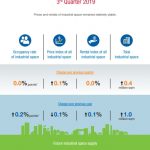Hotel investment volumes driven by investors increasingly being drawn to safe haven assets in region’s key gateway cities
According to research by global real estate consultancy JLL, Asia Pacific’s hotel investment volumes are expected to increase by 25 to 30 per cent year-on-year to more than US$11 billion in 2019.
“Despite a cautious economic climate and wider political headwinds, hotels in Asia Pacific present an attractive yield profile amid booming tourism demand, in the context of falling interest rates and bond yields,” says Mike Batchelor, CEO, JLL Hotels & Hospitality Asia Pacific.
“Much demand this year has been buoyed by private equity firms, developers and domestic clients. This leads us to believe that 2019 will be the third most highly-transacted year in the past decade. To date, only 2017 and 2015 have surpassed the US$11 billion threshold.”
According to JLL, the first nine months of the year have already seen US$7.8 billion worth of hotel investment volumes in the region.
Table of Contents
Thanks to Japan and its series of mega events such as the 2019 Rugby World Cup, 2020 Tokyo Olympic Games and 2025 World Expo, the country has reached close to US$3 billion of transaction volumes so far.
These tourism drivers will boost the need for accommodation assets, with investors looking to capitalise on the wave of demand. Japan is the region’s top performing market and forecast to hit a record high of US$4 billion in transaction volumes this year,” adds Mr Batchelor.
Across the region, the hotel market outlook remains positive. Over in China, softening office leasing demand and sluggish retail sales have turned investors’ attention towards hotels, where trading performance has been resilient.

Elsewhere, Singapore has seen a few landmark deals this year. In September, JLL advised OUE Limited in an agreement to sell Oakwood Premier OUE Singapore to a Hong Kong joint venture for US$209 million. Most recently, JLL concluded the US$344 million agreement to sell Andaz Singapore in the largest single-hotel asset transaction ever in the island city’s history.
“SINGAPORE SINGING
“Singapore’s cityscape is set to change dramatically in the coming years under state plans, boosting the island nation’s identity as a global business gateway and tourist haven.
What used to be a large port in the south will become an extensive waterfront promenade, dubbed the Greater Southern Waterfront. It will be filled with lush greenery and will allow for seamless connectivity from offshore island Sentosa all the way up to the Central Business District. In addition, the two existing integrated resorts, Marina Bays Sands and Resorts World Sentosa, are also due for massive expansions worth an estimated US$6.5 billion, in a bid for the city to continuously refresh its tourist offering.
At Changi Airport, ranked by Skytrax as the world’s best airport for the seventh consecutive year in 2019, a new landmark “retail-tainment” mall, Jewel Changi Airport, received a spectacular reception from international passengers and Singapore residents alike. When Changi Airport Terminal 5 opens in the 2030s, it will significantly increase the airport’s total handling capacity by around 60 per cent to 135.0 million.
In addition to single asset transactions which have occurred within the market, the consolidation of Singapore REITs has been a central feature of the market this year. The merger of OUE Commercial REIT and OUE Hospitality Trust completed in September, whilst the announcement of the merging of Ascott REIT and Ascendas Hospitality Trust followed shortly behind. The expanded REITs are likely to benefit from reduced borrowing thus enhancing purchasing power in the markets they are active in.
As a key global gateway city, Singapore remains high on investors’ radar, largely supported by its positive trading performance, strong visitor arrivals and new tourism initiatives. The numbers back this – total transaction volume in Singapore, including hotel land sale sites, is expected to surpass US$1.8 billion in 2019, the highest ever on record.”
Foreign capital seeks higher returns
The report reveals that while domestic investors have been active in their home markets, particularly in Japan and China, there remains an influx of foreign investment looking to tap into the region’s strong tourism growth and high yields.
South Korea, for instance, has seen a spike in international investor interest in 2019. Overseas investors are gaining increasing access in a tightly-held market as more institutional investors look to exit their investments after the pre-specified hold periods.
Mr Nihat Ercan, Managing Director, Head of Investment Sales Asia, JLL Hotels & Hospitality says: “Up until 2015, transactions in South Korea were almost purely domestic, but today cross-border deals make up about a quarter of total transactions. As the market matures further, we can expect foreign investors to make up a larger proportion of trading volumes.”
Another recipient of continued foreign capital is the Maldives, as identified in the report. Its reputation as a sought-after tourist destination has attracted more than US$260 million in cross-border deals alone this year.
Hotel investment volumes driven by lure of safe haven assets in region’s key gateway cities
“As both overseas and domestic investors seek out higher yielding opportunities across Asia Pacific, the hospitality sector will continue to shine,” concludes Mr Ercan. “We’re confident that this investment momentum will continue to drive the region’s hotel transaction volumes going into 2020.”
Mr Paul Ho, chief mortgage officer at iCompareLoan, said, “Draft Masterplan 2019 positions Singapore as a livable city, a global business gateway and tourist haven. With such positioning, it is understandable why hotel investment volumes will be driven-up here. There is a lot of excess fluidity in the region and Singapore is seen as a safe haven for real estate investments.”






